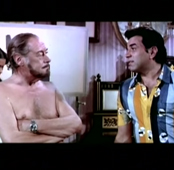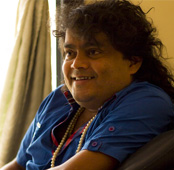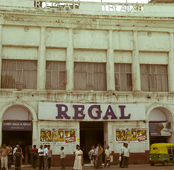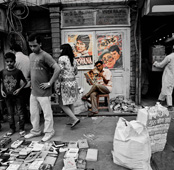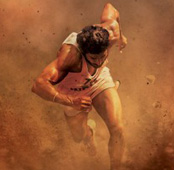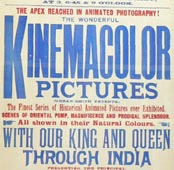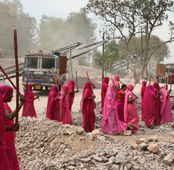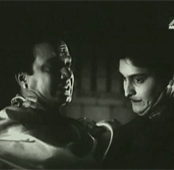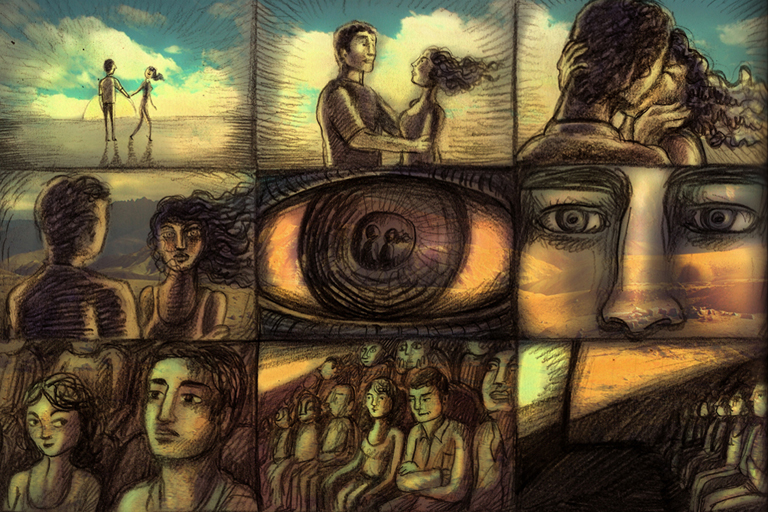
Raja Sen writes a billet-doux to the movies
Part 1: In Cinema We Trust.
It’s all about timing. From delivering punchlines to handling zippily pitched-up yorkers, from relationships to karaoke, it’s all about wielding the seconds-hand of the watch like a samurai sword and striking just right. We are when we choose to be, and timing dictates everything, the way you will remember what happens, say, tonight, or the way you might choose instead to fib about it.
Timing is the difference between a potential flirtation making for an awkward Wes Anderson mess of shuffled-feet and stilted conversation, and an efficiently magical Richard Curtis meet-cute to be recounted over many a celebratory dinner. With the words staying the same, the right pauses and stabs at the When can cast you as either Woody Allen or Ryan Gosling—so choose wisely.
Cinema gets the timing right for us.
We read books at our own speed, dawdling lazily over pleasurable pages or wolfing down sentences like a plot-hungry junkie. We gaze at a painting for hours or dismiss it with a glance, in exactly the way some comic-book panels arrest and invite us to pore over every detail while others keep our eyes on narrative, not penmanship. Music, you may argue, is also consumed as the creators intended—at the song’s own inherent pace—and yet constantly curated playlists and the ‘loop’ button ensure that while we do indeed listen to the same song at the same speed, we do it very differently indeed. Even those of us that don’t press ‘shuffle’.
When we watch a film, however, we fish into our pockets for our forever busy decision-making keys and check them in at the counter. For the next ___ minutes, we surrender to the film’s way of telling its story. Like it or lump it, we aren’t the ones choosing. Our hands are cuffed and jangling them around in protest can lead only to stern looks and growled shushes.
Most of my life is spent professionally watching unambitious cinema of substandard pedigree, cinema that revels in tawdry mediocrity and commercial crassness, cinema that infuriates, exasperates, stultifies, and cinema that barely tries. Sheer masochism, ladies and gents, is sometimes what wakes me up (and sends me to a movie theatre) in the morning, downing an unwatchable blockbuster for breakfast.
And yet one soldiers on, gladly. Because when cinema does get the timing right, it overwhelms on a cosmically staggering level. The stars align perfectly, the light is gorgeous, and hundreds of sunsets pale in comparison to the orange of even an immaculately-shot freckle. Because cinema is about believing—in characters, words, gags, relationships; in stories and their power; in messages and the complete lack thereof; in ourselves when we can relate to those on screen; and, when we can’t, in men with spit-curl’d hair who can fly. We believe because we want to. We believe because we must.
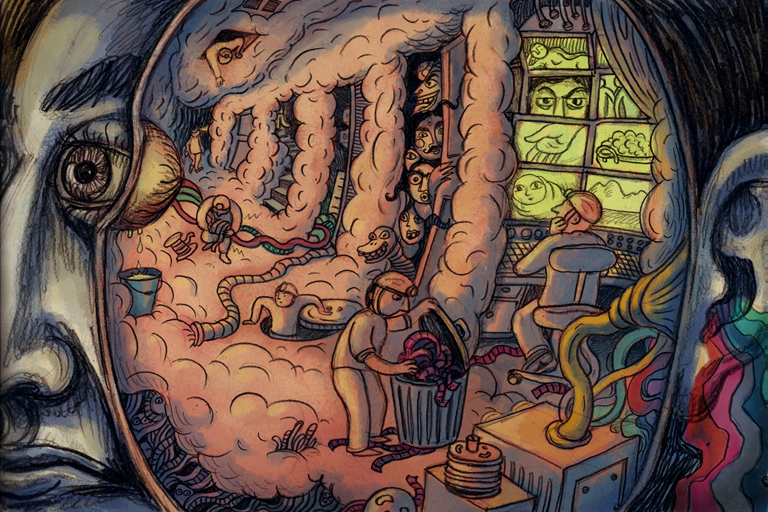
Part Two: The Importance Of Seeing Earnest
Pushy as ever, the city wakes him, obtrusively spilling into his dreams. It’s a hot, stifling night and he’s wearing a vest as he wakes up, and rubs his clean-shaven face. The city sounds like it does: nonstop, rat-a-tat, a backstage whirr from the sprockets that keep it chugging. He walks to a mirror and looks into it with sleepy, nightmare-nudged intensity, as if to reassure himself he hasn’t woken up a flea. Walking wearily back to bed, he collapses towards the pillow.
And that would be all, except said collapse is abruptly in slow-motion, and as head makes contact with cotton, Be My Baby by The Ronettes takes over the audio. It’s a moment of joyous cinematic exuberance and a vital reminder: God may script a solid scene every once in a while, but Scorsese does a better soundtrack.
And so much of life is about the music. Jazz plays in our heads as we stroll down a breezy beach, punk rock underscores moments involving enormous crowds, heavy metal comes in handy in peak traffic, ballads play when eyes meet prettier ones, and it is officially impossible to try on cowboy boots without a theme tune to aid the swagger. Inversely, songs are snapshots. You remember where you were, who you were with, who played you the song, what you were celebrating, who sang it to you. Pop polaroids. You remember joint discovery—when you tripped together over words about squirrel-bitten peas—and joint disappointment—when four Irish lads turned lousy almost overnight. Music makes memories and vice versa. And where’d we be without something to hum to?
While on memory, I’ve always been bothered by flashbacks in the movies. Since I was a child. No, the non-linearity’s fine; it just bugs me when a character recounts something and we see them in the scene too, instead of the camera exclusively being their eyes. As if the act of narration itself automatically provides an out-of-body perspective on the event. And yet now, conditioned by many a jump-cut over many a year, I often look back with a multiple-camera setup, my voiceover steadily reassured by omniscient awareness. Is it accurate? Heavens, no. It gets even better when surrounded by old school friends, lager-affectionate and nostalgic for days that weren’t as golden as they now seem: here the burst of memory leaves mere flashback behind and turns to montage. Mostly, in my case, cut to either Bon Jovi or that song from Satte Pe Satta.
Naturally, editing makes all the difference in the world. Like George Costanza said, life doesn’t look so bad when compressed into a week’s worth of achievements. And so from our lives we omit the less-relevant, the less-flattering, the less-thrilling and the less-than-vital. We guillotine it out of the narrative because we must—because there is only that much space for our own story—and while we’ve lived what is left on the cutting-room floor, we choose to let it go. And, in its stead, take the time four of us walked to a car wearing black suits, and accord it slow-motion importance. With Little Green Bag playing in the background.
We’re all protagonists, we are. We’re the biggest face on our poster, we’re the character Johnny Depp would play. But what movie is it? Once we know that—the genre, the director, the style—we’re bloody sorted. We never quite do, of course. It’s hard enough figuring out what kind of film we’ve been cast in—a bleak dramedy, a gothic nightmare, a coming-of-age story, a cheery romance, a cheesy actioneer—before getting to the specifics. Because Wong Kar-Wai and Yash Chopra would each direct a climax very differently, and it’d help to know what to expect. Yet, as Catherine showed Jim and Jules, it is all about taking the plunge into the unknown.
It is about choice, and like Rent-Boy, “I chose not to choose life. I chose somethin’ else.” And who indeed needs reasons when you’ve got the movies?
(In the gallery: A graphic take on the letter of love by Sunaina Coelho and Fahad Faizal, Mumbai based designers who work mostly in the area of animation. Their work includes short comic pieces, creating characters, concept art, internet virals, TV promos and anything else which involves drawing– which is their common love. Another common love is a cat named Elizabeth who will make her cinematic debut on YouTube.)
What I Speak of When I Speak of Cinema
ArticleSeptember 2012
 By Raja Sen
By Raja Sen
Raja Sen is one of India's leading film critics. He also contributes profiles, interviews, culture critique and book reviews to various publications. In his own words he is a W.R.I.T.E.R. Foremost and at all times.


